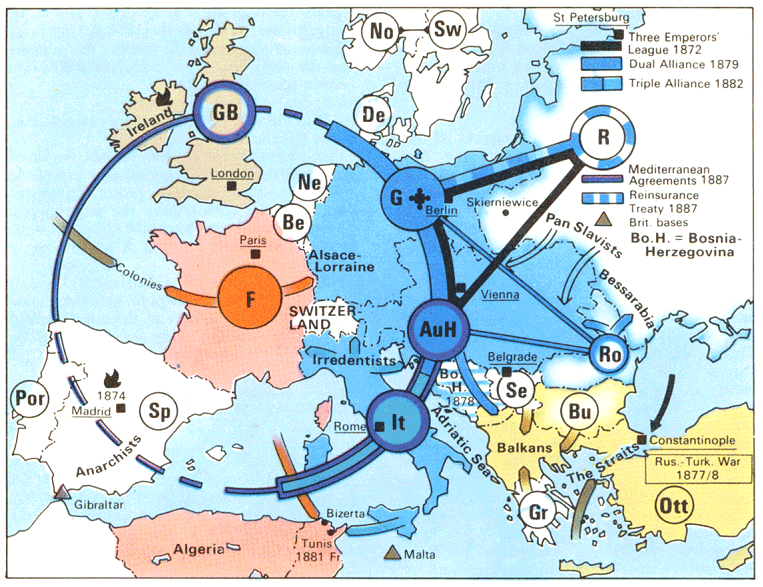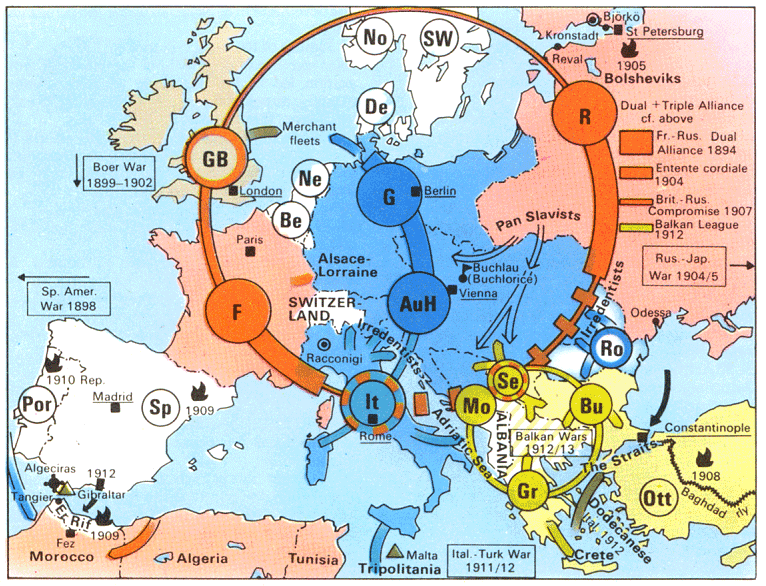
Fearing a two-front war, Germany’s Chancellor Otto von Bismarck negotiated an alliance system to isolate France. His first alliance was the Three Emperors’ League between Germany, Austria, and Russia in 1873. However, with the rivalry between Austria and Russia increasing, Bismarck separated them into two alliances. In 1879, Austria and Germany formed the Dual Alliance, which pledged German support to Austria in case Russia attacked. To maintain ties with Russia, Bismarck signed the Reinsurance Treaty of 1887 in which both Russia and Germany pledged their neutrality in case the other power became involved in a war of aggression with a third power. The treaty prevented a two-front war if France attacked Germany, but left Germany stuck between a promise of neutrality and support in the Balkans. In 1889, Kaiser Wilhelm I died and his grandson Wilhelm II disliked Bismarck,leading to the latter’s resignation in 1890.

Seeing an opportunity, France moved quickly to escape isolation. In 1892, Russia and France signed a military treaty pledging military assistance if Germany or one of Germany’s allies attacked either power. Soon after, Great Britain and France realized the necessity for peaceful relations to solve their imperial differences. British-French-Russian rapprochement opened the door to a series of treaties. The first step came in 1904 with the Entente Cordiale (Friendly Agreement) between France and England, settling imperial differences.
By Dr. Niels Eichhorn